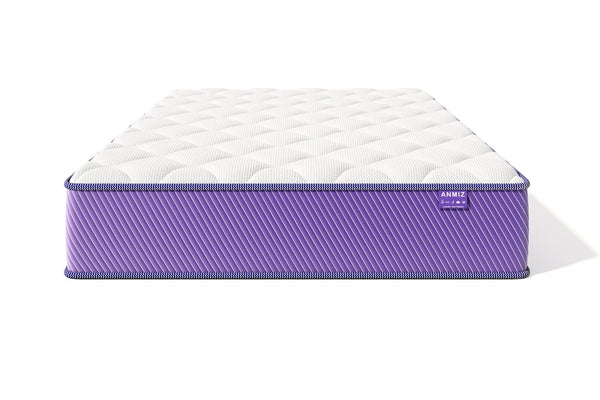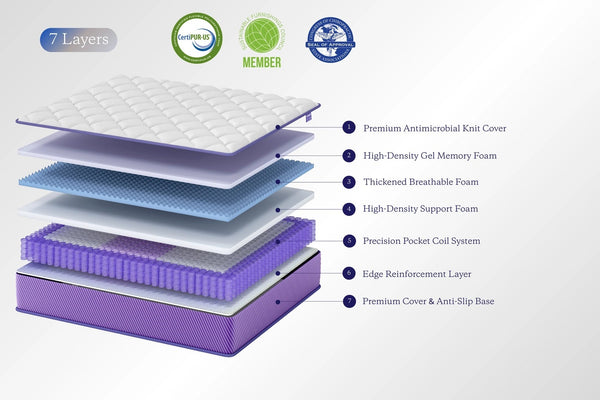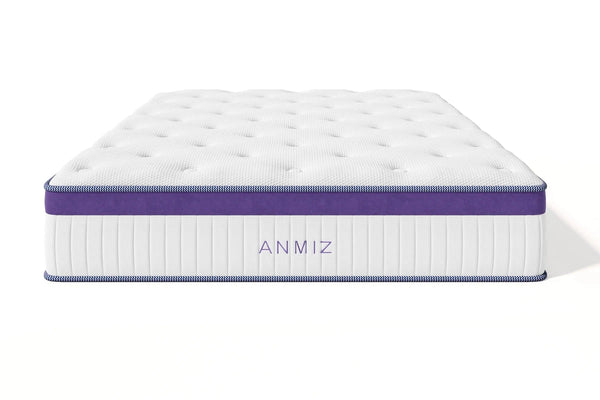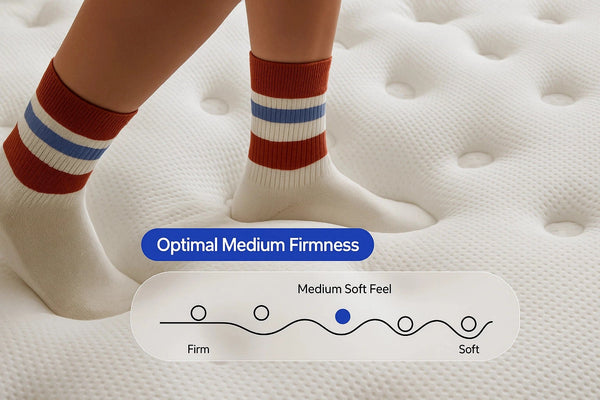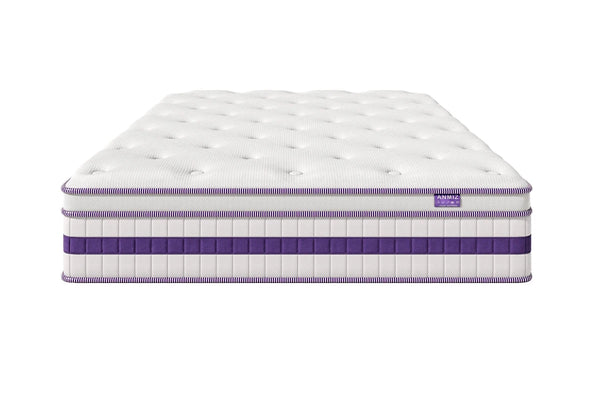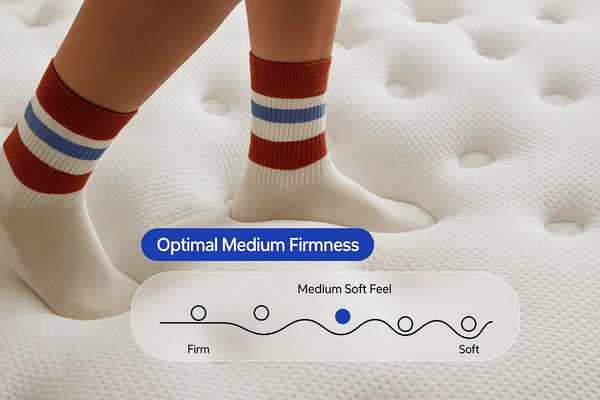Best Mattress for Back Trouble: Discover Relief with the Best Mattress for Back Trouble
Struggling to get out of bed because of a nagging backache? You’re definitely not alone. Finding the Best Mattress for Back Trouble could be the key to finally waking up refreshed, instead of wincing with every movement. Let’s dive into what really matters when shopping for a mattress that’s not just good—but life-changing—for your back.
Why a Good Mattress Matters for Back Trouble
The Hidden Damage of Poor Mattress Support
Ever wake up feeling worse than when you went to bed? That’s your mattress betraying you. A worn-out or unsupportive mattress can worsen back issues by failing to maintain your spine's natural curve. Over time, this leads to stiffness, misalignment, and an endless cycle of discomfort.
When your body sinks unevenly into the mattress, pressure builds on certain joints and muscles, especially in the lower back. This is why maintaining neutral spinal alignment while you sleep isn’t a luxury—it’s a necessity for real healing and deep rest.
How the Right Mattress Helps Your Body Heal
A high-quality mattress supports your body by distributing weight evenly and reducing strain on pressure points. Proper support means your spine stays aligned, your muscles can relax, and your joints aren’t working overtime while you sleep. In short: a better mattress = better mornings.
Think of it as giving your body a spa treatment every night—minus the cucumber slices.
Key Features to Look for in the Best Mattress for Back Trouble
Medium-Firm Support: The Sweet Spot
Experts overwhelmingly recommend medium-firm mattresses for back pain relief. Why? Because they provide the right amount of firmness to support the spine without creating pressure points that make you wake up feeling like you’ve wrestled a bear all night.
Pressure Relief: Hug, Not Hardness
Pressure-relieving materials like memory foam or latex contour to your body, evenly distributing weight and reducing stress on your hips, shoulders, and lower back. Zoned support systems are even better, offering firmer support where you need it and softer cushioning where you don’t.
Durable, High-Quality Materials
A mattress isn’t just a one-time comfort purchase—it’s a 7- to 10-year commitment. Look for high-density foams, strong coil systems, and breathable fabrics that maintain their support and shape for years to come.
| Feature | Why It Matters |
|---|---|
| Medium-Firm Support | Optimal for spinal alignment and reducing pain |
| Pressure Relief | Prevents pressure points on hips, shoulders, and back |
| Zoned Support | Customized firmness in different body areas |
| High-Quality Materials | Ensures durability and consistent support |
Top Types of Mattresses for Back Trouble
Memory Foam: Personalized Comfort
Memory foam isn’t just trendy—it’s a back saver. It conforms to your body’s natural shape, relieving pressure points and keeping your spine aligned. If you’re a side sleeper, memory foam provides extra cushioning around your hips and shoulders, cradling you in all the right places.
Bonus: Many modern memory foam options come with cooling gels to keep you from feeling like you're sleeping in a sauna.
Innerspring and Hybrid: Best of Both Worlds
Prefer a bit more bounce and breathability? Innerspring mattresses provide responsive support but can lack pressure relief. That’s where hybrids shine—they combine the solid support of coils with the comfort of foam or latex layers. Look for models with zoned coils if you want even more targeted support for your lower back.
Tips for Choosing the Best Mattress for Back Trouble
Consider Your Sleep Position
Your sleeping position plays a massive role in what mattress will work best:
- Side Sleepers: Softer surfaces help cushion the shoulders and hips, reducing pressure points.
- Back Sleepers: Medium-firm support maintains the spine’s natural curve without excessive sinking.
- Stomach Sleepers: Firmer mattresses prevent the midsection from dipping, which can strain the lower back.
Choosing a mattress that suits your sleep style isn’t just smart—it’s essential for waking up pain-free.
Firmness: Find Your Comfort Zone
While medium-firm is the general recommendation, personal factors like weight, height, and pain points will affect your ideal firmness. Lighter individuals may find medium-soft mattresses more comfortable, while heavier sleepers may need a firmer base for adequate support.
Many brands now offer trial periods of 100 nights or more—giving you ample time to see if your back approves.
How to Maximize Comfort with Your New Mattress
Invest in Quality Bedding
Your mattress might be the star, but your bedding plays a critical supporting role. Look for pillows that align your neck with your spine and breathable sheets made from cotton or bamboo to help regulate body temperature throughout the night.
Ever slept on low-quality sheets? It’s like wearing an itchy sweater to bed—hard pass.
Create a Sleep-Friendly Environment
Enhance your new mattress by setting the stage for great sleep: dim the lights, lower the thermostat to around 65°F, and minimize noise. Establish a calming bedtime routine (think reading or meditation) to cue your body that it’s time to wind down.
Your mattress can only do so much—you’ve got to meet it halfway!
Conclusion: Sleep Your Way to a Pain-Free Morning
Choosing the Best Mattress for Back Trouble is more than an upgrade—it's a game-changer for your health and quality of life. Focus on features like medium-firm support, pressure relief, and high-quality materials to find your perfect match. Trust us—your back will thank you every morning.
Ready to experience pain-free sleep? Don’t wait another night. Start exploring your options today, and take that first, important step toward waking up refreshed, recharged, and pain-free.
Frequently Asked Questions (FAQ)
What Makes a Mattress Suitable for Back Pain?
The best mattress for back pain provides medium-firm support, maintains spinal alignment, and offers pressure relief for common problem areas like the lower back, hips, and shoulders.
Can Any Mattress Cure Back Pain?
No mattress can "cure" back pain, but the right one can dramatically reduce symptoms. Combine it with good posture, stretching, and proper sleep hygiene for best results.
How Long Should I Test a Mattress Before Deciding?
Give yourself at least 30 days to adjust to a new mattress. Most reputable brands offer trial periods of 100 nights or longer—plenty of time for your back to weigh in.

